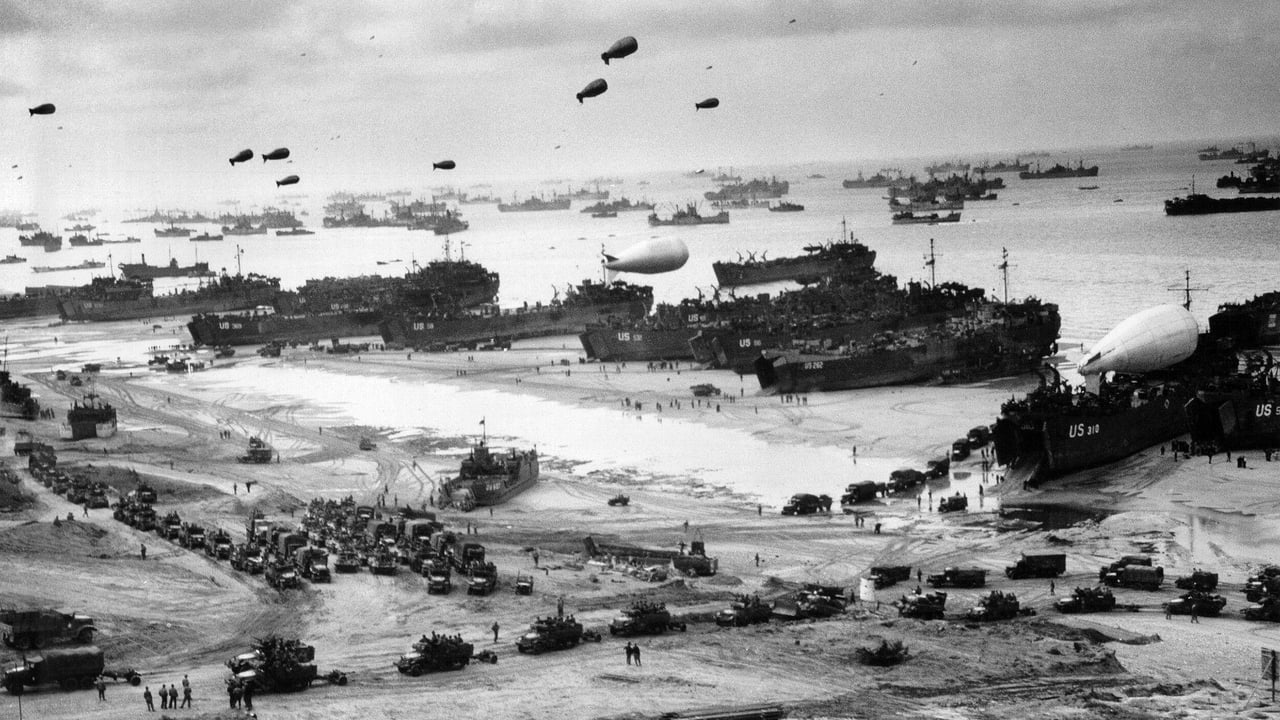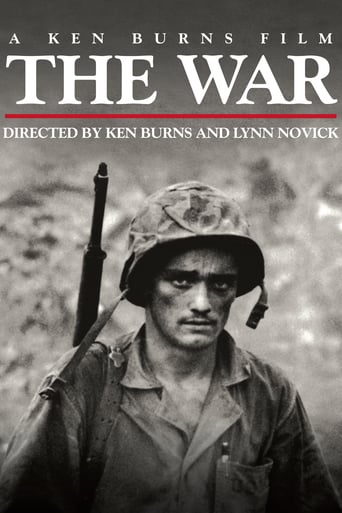Jeanskynebu
the audience applauded
SpuffyWeb
Sadly Over-hyped
Nessieldwi
Very interesting film. Was caught on the premise when seeing the trailer but unsure as to what the outcome would be for the showing. As it turns out, it was a very good film.
Ogosmith
Each character in this movie — down to the smallest one — is an individual rather than a type, prone to spontaneous changes of mood and sometimes amusing outbursts of pettiness or ill humor.
zkonedog
Too many times, historical documentaries of World War II (or any war for that matter) focus way too much on the technical aspects of the event, such as where battles took place, what the military strategies were, and how many were killed. Instead of taking this tact, master historian/filmmaker Ken Burns chooses to focus on the stories of a few individuals (and their families/friends) who participated in the war.Now, don't get me wrong...Burns also does enough historical recapping to satisfy a viewer who has no idea what happened (trust me, these people do exist!). However, Burns masterfully blends that information with the touching stories of individuals who did the "dirty work" of the war.As a result, this documentary works on both the micro and macro levels of filmmaking. On one hand, it chronicles the United States' participation in the war...it is especially interesting to see the blatant racism against blacks and Japanese citizens, as well as the helpful attitude U.S. citizens had towards the war effort (very much unlike contemporary wars). On the other hand, it probes the brittle human psyche that is created in the aftermath of war, as humans who are raised to never take a life must adopt an entirely new frame of mind while in combat.Overall, this film was the best World War II documentary I have ever seen. By combining the "big picture" of the war effort (complete with simple graphics and illustrations) with the heartwarming (or heartbreaking) individual stories of its participants (I was close to tears on more than a few occasions), Ken Burns created a realistic tapestry of the effects the war had on every citizen. It is so genuine that I almost felt guilty sending it to my grandfather, a WW2 veteran, as I was afraid it would drudge up too many painful memories for him.
Rick Stevenson
I've watched this mini-series at least a half dozen times at this point. Each time, I learn new things. Each time, I'm completely enthralled. There is so much insight, so many things that I did not know about World War II that it is sometimes difficult to absorb everything that's related. And this is, mind you, just from the point of view of the United States and its soldiers, sailors, airmen and Marines.In particular, the first person stories told by those who were there, who fought or were prisoners during the war, are very engrossing. Their stories are poignant, and you genuinely feel their losses and their grief. Even after so many viewings, I frequently find myself tearing up at certain points. This is one of the many things that speaks to the enduring quality of the documentary. Keith David's narration is spot on, providing an anchor that is sometimes necessary considering the material being discussed.In short: I cannot recommend this more. Watch it.
Charles Reinderhoff
I have now watched this series of films twice. Its just tremendous. I don't have any other word for it. The amount of detail, the supporting cast of interviews, the music, the massive amount of images, it's all so incredibly well done, words do not suffice. If there ever has been one truly brilliant documentary on the meaning of total war, this has to be the one. As a European I realize that the story focuses on the American soldier and the American experience, which I fully understand. As a European, 'we' have of course that other masterpiece, 'The World at War'. Together, they complete the story on this black hole in human misery and history. I was sometimes moved to tears watching 'The War'. Again, the amount of detail is stunning. Watching this series of films leaves you wishing that there will never again be such a human catastrophe. In my view this film crowns the unbelievable effort Americans made to restore freedom and civilization to the world. Whatever anybody thinks or says, it's only thanks to the United States of America and it's people, that we today can walk the earth (or most part of it) a free human being. I'm glad (and lucky) that I belong to a generation (born 1956) that have been able to cherish freedom and peace without having to put my life on the line, like all these millions of men and women. This film is a Big thank you.
Leviticus
I've read deeply into the history of the second world war, so I was no stranger to the majority of the material. The Civil War Series was so good I figured Ken Burns would hit a home run on this one too. Not hardly. The Good~ The entire series is infused with large amounts of uncommon archival footage and many photographs. It was almost worth watching to see pictures that have NOT been in every WWII history book since the '50s. The series explains just the right amount of overall strategy to keep the viewer on track. Well done. The vignettes and stories about various home front activities were quite interesting. It's easy to forget that against the backdrop of a great drama ordinary life has to go on. Anecdotes about war plants, scrap drives, war bond sales and the like provided a lot of body and background to the story. The interviews with survivors were also excellent. The Bad~ Ponderous, overreaching attempts are made throughout the entire series to show what a racist country the U.S. was in its treatment of Blacks and Japanese-Americans. Nobody denies the Japanese internment, or the lot of Blacks during that era. It would have been okay to talk about it as part of the history of what happened, and maybe show how far we've come in our attitudes since, but Burns couldn't leave it alone. About every fifteen or twenty minutes we return back home from the war front to another awful story about the internment camps, Whites-only lunch counters, segregated armies, and on and on and on. Then it's back to the war front with the jaunty clarinet music for a while. About the time you're getting thoroughly engrossed in what was going on in the Solomons, it's back home for another dose of white guilt flagellation. It ruins the whole series. Four out of Ten.

